
by Kanimozhi BV | Sep 11, 2024 | Kitchen, Interior
Why Does Your Kitchen Sink Smell and What Can You Do About It?
If you’ve ever noticed an unpleasant smell coming from your kitchen sink, you know how frustrating it can be. Whether the smell is caused by food particles, grease buildup, or bacteria, these odours can spread quickly through the kitchen, affecting the overall cleanliness and atmosphere.
Luckily, there are simple ways to eliminate these smells and keep your kitchen fresh. This guide on how to remove smell from kitchen sink, will walk you through the causes of kitchen sink smells, how to identify them, and practical, step-by-step methods to get rid of them once and for all.
What Causes Smells in the Kitchen Sink?
Several factors can lead to unpleasant odours in your kitchen sink:
- Food Particles: Leftover food particles often get washed down the drain and decompose, causing bad smells.
- Grease Buildup: Grease and oil stick to the inside of pipes, trapping food particles and contributing to foul smells.
- Bacterial Growth: Moisture inside the pipes creates the perfect environment for bacteria to grow, which leads to the release of unpleasant gases.
Identifying the root cause is the initial step to eliminating the smell for good.
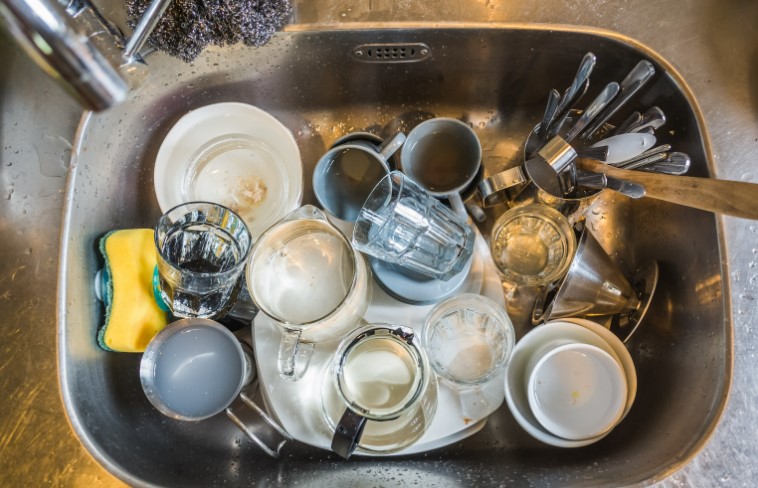
How Can I Identify the Source of the Odour?
To fix the problem, you need to locate the source of the smell. Here’s how:
- Check for Clogs and Unclog : Look into the drain for visible blockages. Run water and see how it drains—if it’s slow, there’s likely something clogging the pipes.
- Inspect the Garbage Disposal: If you have a garbage disposal, it might be harbouring small food particles that cause odours. Check it carefully or use a cleaning brush to look for trapped debris.
- Smell Near the Drain: Sniff close to the drain. If the odour is strongest there, it’s likely coming from the pipes.
What Are Some Natural Remedies for Removing Kitchen Sink Smells?
Using natural solutions is an effective and safe way to tackle kitchen sink odours. Here are two highly recommended remedies:
1. Baking Soda and Vinegar:
- Pour half a cup of baking soda.
- Follow with half a cup of white vinegar. The mixture will fizz as it works to break down food particles and grease.
- Let it sit for 10-15 minutes.
- Finish by flushing the drain with boiling water to clear out any remaining debris.
2. Boiling Water:
- Boil a kettle of water.
- Slowly pour it down the drain in stages. The heat will help dissolve grease and wash away any small particles.
- Repeat this process once a week to prevent future odours.
These natural methods are environmentally friendly, safe for your plumbing, and highly effective in deodorizing your kitchen sink.
Step-by-Step Guide to Remove Bad Smells from Your Kitchen Sink
Here’s a detailed step-by-step guide on how to remove bad smells from your kitchen sink:
1. Clear Blockages
Step 1: Start by inspecting the drain for any visible clogs.
- Use a plunger to loosen any blockages, or opt for a drain snake to clear deeper clogs.
- If you don’t have a drain snake, a simple wire coat hanger can be bent and used to fish out blockages.
- Ensure that water flows freely after clearing the blockage.
2. Flush with Hot Water
Step 2: Flush the drain with hot water.
- Tip: Avoid using boiling water if you have PVC pipes, as it could damage them.
- This step helps loosen and wash away any residual grease or food particles clinging to the pipes.
3. Including Baking Soda and Vinegar Solution
Step 3: Pour ½ cup of baking soda down the drain.
- Follow it up with ½ cup of white vinegar.
- Tip: You’ll hear a fizzing sound, which means the solution is breaking down any buildup inside the pipes.
- Let the mixture sit for 10-15 minutes. This will dissolve grease, food debris, and any bacteria lurking in your drain.
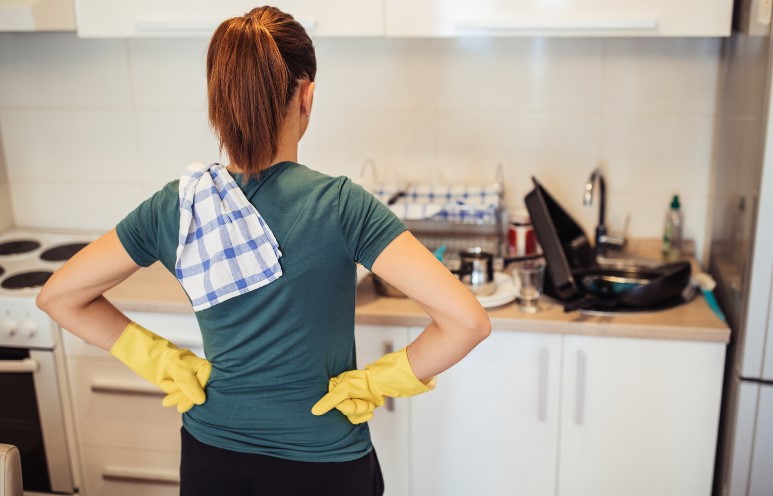
4. Scrub the Sink and Drain Cover
Step 4: While waiting for the baking soda and vinegar to work, use this time to clean the sink surface and the drain cover.
- Apply a bit of dish soap to a sponge or brush and scrub around the drain and the sink itself.
- This will eliminate any grease, grime, or food residue that might be stuck there.
5. Clean the Garbage Disposal
Step 5: If your kitchen sink has a garbage disposal, it’s important to clean it properly.
- Add ice cubes & a few citrus peels (like lemon or orange) to the disposal.
- Run the disposal for a few seconds. The ice helps knock off food particles stuck to the blades, while the citrus freshens the disposal with a clean scent.
- Tip: Running cold water while the disposal is on helps to wash away the debris.
6. Final Flush with Hot Water
Step 6: After cleaning the garbage disposal, do a final flush with hot water.
- Pour another kettle of hot water down the drain to rinse away any remaining cleaning solution and debris.
By following these steps, you’ll effectively remove any bad smells coming from your kitchen sink and ensure it stays fresh for longer.
How Can I Prevent Future Kitchen Sink Smells?
To prevent kitchen sink odours from returning, follow these easy prevention tips:
- Avoid Pouring Grease Down the Drain: Grease is the main culprit in sink blockages. Always dispose of grease and fat in a bin, not in the sink.
- Run Hot Water Regularly: After washing dishes, run hot water down the sink for a few seconds.
- Use a Garbage Disposal Cleaner: For those with a garbage disposal, run a cleaner or place citrus peels inside to neutralize odours.
- Clean the Sink Weekly: Make a habit of cleaning your sink with baking soda and vinegar weekly. This simple practice will keep your pipes clear and odour-free.
- Use a Drain Strainer: Place a drain strainer over the sink drain to catch food particles and prevent them from going down the pipes.
By maintaining these practices, you’ll keep bad smells at bay and avoid costly plumbing issues in the future.
When Should I Call a Professional Plumber?
Sometimes, home remedies aren’t enough to fully solve the problem. Here are signs it might be time to call a plumber:
- Persistent Odour: If the smell persists even after a thorough cleaning, there may be a more serious issue further down the pipes that needs professional attention.
- Slow Drainage: Water draining slowly, despite clearing blockages, could indicate a more complex plumbing problem that requires a plumber’s expertise.
- Frequent Clogs: If your sink is clogging more often than usual, it might be time for a professional inspection to see if there’s a major blockage or pipe issue.

Conclusion
A smelly kitchen sink doesn’t have to be a permanent problem. By understanding the causes and following the step-by-step guide provided, you can remove bad odours and prevent them from returning.
Regular maintenance, such as flushing the drain with hot water and using natural cleaning solutions like baking soda and vinegar, will keep your kitchen sink smelling fresh.
Remember, prevention is key. With these tips on how to remove smell from kitchen sink, your kitchen sink will stay clean and free from unpleasant smells.
Related Article: How to Unclog a Dishwasher With Standing Water?
Frequently Asked Questions (FAQ)
1. Can I use bleach to clean my kitchen sink?
While bleach can be effective at killing bacteria and neutralizing odours, it should be used sparingly. Bleach can be harsh on pipes and the environment. Natural alternatives like baking soda and vinegar are gentler and just as effective.
2. Why does my sink smell worse after using the garbage disposal?
The garbage disposal can sometimes trap food particles inside, causing them to rot and emit bad smells. Cleaning it with ice cubes and citrus peels or using a disposal cleaner can solve the issue.
3. What can I do to avoid clogging my kitchen sink?
Avoid pouring grease, coffee grounds, or large food particles down the sink. Use a drain strainer to catch debris, and run hot water after each use to keep the pipes clear.

by Kanimozhi BV | Sep 11, 2024 | Refrigerator, Appliances, DIY Ideas
Why Does Your Fridge Smell and What Can You Do About It?
Are you looking for how to remove smell from fridge naturally? If your fridge has developed a lingering smell, you’re not alone. Odours often build up due to spoiled food, unnoticed spills, or improperly stored items.
Thankfully, you don’t need to rely on harsh chemicals to eliminate these smells. There are simple, natural methods that can effectively deodorize your fridge and keep it smelling fresh.
In this guide on how to remove smell from fridge naturally , I’ll show you how to remove bad smells from your fridge using eco-friendly, DIY techniques.

What Causes Fridge Odours?
Before diving into solutions, it’s important to know what might be causing your fridge to smell.
- Spoiled Food: Unnoticed rotten fruits, vegetables, or dairy products are often the main source of foul odours.
- Uncovered Foods: Strong-smelling items like cheese, onions, or garlic can spread their smell throughout the fridge if left uncovered.
- Spills and Moisture: Liquids that drip or spill can breed bacteria and mould, both of which contribute to the smell.
What are the Step-by-Step Guide to Remove Fridge Smells Naturally?
1. Clear Expired and Spoiled Food
The first step to eliminating odours is to clear out expired or spoiled items from your fridge. Here’s what to do:
- Check expiration dates regularly, especially on dairy products and leftovers.
- Dispose of anything that smells or looks suspicious, such as rotting fruits or vegetables.
By keeping your fridge free from expired food, you can avoid the most common cause of bad smells.
2. Deep Clean the Fridge
Next, deep clean your fridge using natural cleaning agents. This will help eliminate any bacteria or odour-causing residue:
- White Vinegar: Mix equal parts vinegar with water in a spray bottle. Vinegar has natural deodorizing properties and can neutralize bad smells.
- Baking Soda Paste: Create a paste with water and baking soda, and scrub surfaces, shelves, and drawers to remove any stuck-on spills.
Make sure to clean the door seals and any crevices where spills can collect. Use a toothbrush to scrub hard-to-reach areas.
3. Neutralize Odours
Now that your fridge is clean, it’s time to neutralize any lingering odours with these natural solutions:
- Baking Soda: Place an open box or bowl of baking soda on a shelf to absorb odours. Replace it every 2-3 months.
- Lemon: Cut a lemon in half and place it in the fridge to leave behind a fresh, citrus scent. You can also use just the peels.
- Coffee Grounds: For a different approach, place used coffee grounds in a bowl at the back of your fridge to absorb smells.
- Activated Charcoal: This powerful odour eliminator works by adsorbing odours. It can be placed in a bowl or sachet and left in the fridge for months at a time.

What are the Natural Deodorizing Methods to Remove Smell From Fridge Naturally?
Here’s a quick breakdown of natural products you can use to deodorize your fridge:
- Baking Soda: A popular and effective way to absorb bad smells.
- Lemon Peels: They leave a refreshing scent and absorb mild odours.
- Activated Charcoal: Long-lasting and highly effective for persistent odours.
- Coffee Grounds: Absorb odours while leaving a subtle coffee scent behind.
These simple solutions will keep your fridge smelling fresh without the need for artificial air fresheners.
How to Prevent Future Fridge Odours?
Once your fridge is clean and fresh, keeping it odour-free requires some simple maintenance steps:
- Regular Cleaning: Wipe down your fridge at least once a month with vinegar or baking soda solutions.
- Store Food Properly: Use airtight containers for strong-smelling foods like cheese and onions.
- Replace Deodorizers: Regularly change out your baking soda, lemon slices, or charcoal sachets to maintain freshness.

Conclusion
Maintaining a fresh-smelling fridge naturally is easy when you use the right methods. By incorporating regular cleaning routines, natural deodorizers, and proper food storage as mentioned in this guide on how to remove smell from fridge naturally, you can keep your fridge smelling fresh and hygienic.
Frequently Asked Questions (FAQ) about Removing Smell From Fridge Naturally
1. How often should I clean my fridge?
It’s best to clean your fridge once a month, and deep clean it every 2-3 months to prevent odours from building up.
2. What’s the best way to store strong-smelling foods?
Use airtight containers to keep strong-smelling foods from spreading odours. You can also place them in designated drawers.
3. Can I use chemicals to clean my fridge?
While chemicals like bleach are effective, they aren’t necessary. Natural cleaners like vinegar and baking soda are safer for your health and the environment.

by Kanimozhi BV | Sep 10, 2024 | DIY Ideas
Why Do Clothes Get a Stagnant Water Smell?
Clothes left in stagnant water or sitting wet for too long can develop a distinct musty smell. This odour is often caused by moisture that remains trapped in the fabric, which leads to the growth of bacteria, mould, or mildew. Whether you’ve accidentally left your clothes in the washing machine overnight or stored damp clothes in a drawer, these odours can be stubborn. In this guide on how to remove stagnant water smell from clothes, we will understand several natural and effective ways to eliminate this smell and leave your clothes fresh again.
What Causes the Stagnant Water Smell in Clothes?
To effectively treat and prevent stagnant water odours, it’s essential to understand what causes them. Here are a few key reasons:
- Prolonged Moisture: Leaving clothes in a damp state for too long can cause bacteria and mould to grow, which is the primary cause of musty smells.
- Inadequate Drying: When clothes are not fully dried, especially in humid environments, the moisture can become trapped in the fibres, leading to that stale, unpleasant odour.
- Clothes Forgotten in the Washing Machine: Leaving wet clothes in the washing machine without transferring them to the dryer promptly can cause a musty smell as they sit in the damp environment.

Step-by-Step Guide to Remove Stagnant Water Smell from Clothes
Follow these detailed steps to completely remove the stagnant water smell from your clothes:
1. Rewash the Clothes Properly
The first step is to rewash the affected clothes. Sometimes, a proper wash with a few additions can make a big difference in eliminating stubborn smells.
Steps:
- Select the Right Water Temperature: If the fabric allows, use hot water. Hot water helps break down bacteria and odours that have developed from stagnant water. For delicate fabrics, use the warmest setting that is safe for the fabric type.
- Use a Quality Detergent: Choose a high-quality detergent for deep cleaning. Detergents with enzymes are especially effective at breaking down organic matter that contributes to bad odours.
Bonus Tip: Add 1 cup of white vinegar directly into the drum of the washing machine. Vinegar is a natural deodorizer and disinfectant that helps kill odour-causing bacteria.
2. Use White Vinegar for Deep Deodorizing
White vinegar is one of the most effective natural solutions for eliminating musty odours. Its acidic properties help neutralize bacteria and get rid of the stagnant water smell without damaging your clothes.
Steps:
- Add One Cup of White Vinegar: Pour one cup of white vinegar into the fabric softener compartment or directly into the washing machine drum.
- Choose a Long Rinse Cycle: Select a long rinse cycle to ensure the vinegar can work through the clothes properly. The longer rinse will help deodorize the fabric by breaking down bacteria.
Why Vinegar Works: White vinegar neutralises the pH of fabrics, kills bacteria, and helps remove mildew smells embedded deep in the fibres. Plus, it’s an eco-friendly option that leaves no chemical residue behind.

3. Add Baking Soda to Neutralize Odours
Baking soda is another natural deodorizer that works wonders on musty smells. It absorbs odours and helps soften the fabric, making it an ideal addition to the washing process.
Steps:
- Sprinkle Half a Cup of Baking Soda: Add half a cup of baking soda directly into the washing machine drum before running the cycle.
- Combine with Detergent: You can use baking soda in combination with your regular detergent to enhance the deodorizing effect.
Bonus Tip: For particularly tough smells, you can pre-soak clothes in a mixture of water and baking soda for 30 minutes before washing. This method allows the baking soda to absorb odours thoroughly.
4. Air Dry the Clothes Outside
Drying your clothes in fresh air and sunlight is one of the best ways to ensure that the musty smell is completely eliminated. Sunlight acts as a natural disinfectant, and the breeze helps evaporate any lingering moisture.
Steps:
- Hang Clothes Outside: After washing, hang your clothes on a line outdoors, preferably in direct sunlight. The UV rays from the sun kill bacteria and fungi that might still be present in the fibres.
- Ensure Proper Airflow: If drying indoors, make sure there’s proper airflow to allow the clothes to dry completely. A fan or open windows can help circulate air.
Why It’s Important: Drying clothes completely is essential to prevent any dampness from returning and causing the odour again.
If you want to add a pleasant, natural scent to your clothes after deodorizing, you can use essential oils. Certain essential oils like lavender, eucalyptus, or tea tree oil not only provide a fresh scent but also have antibacterial properties that keep odours at bay.
Steps:
- Add a Few Drops to the Laundry: Add 3-5 drops of lavender or tea tree oil to the rinse cycle of your washing machine. Alternatively, mix the essential oils with your detergent before starting the cycle.
- Spray Essential Oils After Drying: You can also create a fabric spray by mixing essential oils with water in a spray bottle. Lightly spritz the clothes after drying to leave them smelling fresh.
Bonus Tip: If you’re sensitive to smells, tea tree oil is an excellent choice as it has both antibacterial and antifungal properties, making it perfect for removing mildew.
What are the Home Remedies to Keep Clothes Fresh?
Here are some additional home remedies you can try to keep your clothes smelling fresh:
- White Vinegar and Baking Soda Mix: This is the ultimate combination for fighting odours. Use it regularly in your wash to keep clothes fresh.
- Lemon Juice: Lemon is a natural deodorizer. Adding a few tablespoons to your wash or rinsing your clothes with lemon juice and water can leave them smelling crisp and clean.
- Essential Oils: Lavender or eucalyptus oils can be added directly to the wash for long-lasting freshness or sprayed on clothes after drying.

How to Prevent Future Smells in Clothes?
Prevention is key to avoiding musty odours in your clothes.
- Don’t Leave Clothes in the Washing Machine: Always remove clothes from the washing machine as soon as the cycle finishes. Wet clothes left quickly develop musty smells in the machine.
- Fully Dry Clothes Before Storing: Ensure that your clothes are completely dry before folding and storing them in drawers or wardrobes. Moisture trapped in the fabric can quickly lead to odour buildup.
- Air Dry Whenever Possible: Hanging clothes outside to dry in fresh air can prevent future odours. If you dry indoors, ensure there’s good airflow to prevent dampness.
Conclusion
By following these natural steps, you can effectively remove stagnant water smells from your clothes and keep them fresh for longer. Regularly airing and properly drying your clothes, along with using natural deodorizers like vinegar and baking soda, will help prevent these odours from returning. Keep these simple remedies in mind for fresher, cleaner laundry every time!
Frequently Asked Questions (FAQ)
1. Can I use bleach to remove the musty smell from clothes?
Yes, bleach can be used, but only on white fabrics or colour-safe fabrics. For delicate clothes, it’s best to use natural alternatives like vinegar or baking soda.
2. Why does my washing machine smell musty?
A musty washing machine can transfer odours to your clothes. Run an empty cycle with hot water and vinegar to clean out any bacteria or mildew from the machine.

by Kanimozhi BV | Sep 7, 2024 | DIY Ideas
Smelly shoes can be a source of embarrassment and discomfort, especially when you’re around others. Thankfully, there are quick, easy solutions to eliminate shoe odors using items you probably already have at home.
In this guide on how to remove smell from shoes instantly, I’ll show you how to remove bad smells from shoes instantly and offer tips on keeping your shoes fresh for longer.
Why Do Shoes Smell?
Bacteria and Sweat
One of the primary reasons shoes develop a bad odor is the combination of sweat and bacteria. Feet naturally sweat, and when moisture from your feet soaks into your shoes, it creates a warm, damp environment that bacteria love. As the bacteria break down the sweat, they release unpleasant smells, causing your shoes to stink.

Poor Air Circulation
Shoes made of synthetic materials or shoes with poor ventilation don’t allow sweat to evaporate properly, trapping moisture inside. The lack of airflow keeps the shoes damp, which worsens the smell over time. Without proper air circulation, it’s harder for your shoes to dry out between uses, making the odor more persistent.
Smart DIY Tips on How to Remove Smell from Shoes Instantly
1. Baking Soda for Odor Absorption
Baking soda considered to be the most effective natural deodorizers of all. It absorbs moisture and neutralizes odors, making it an excellent option for smelly shoes.
- Method: Sprinkle a tablespoon of baking soda into each shoe, making sure to cover the insoles. Let it sit overnight, and in the morning, shake out the excess powder. Baking soda works by absorbing the moisture where the odor-causing bacteria thrive. If you prefer, place the baking soda in a coffee filter or sock before placing it inside the shoe to prevent direct contact with the fabric.
2. Deodorizing Spray
A quick fix for shoe odors is using a deodorizing spray, which is available in most stores. These sprays often contain antibacterial agents that kill the odor-causing bacteria while leaving a pleasant scent behind.
- Method: Spray the inside of each shoe, focusing on the areas where your feet rest. Let the shoes air dry for 2-3 hours before wearing them. Be careful when using sprays on materials like leather, as too much moisture can damage the fabric.
3. Vinegar and Water Solution
Vinegar is a powerful disinfectant that can neutralize bad smells caused by bacteria.
- Method: Mix the same amount of white vinegar & water in a spray bottle. Lightly spray the inside of the shoes, ensuring they are not soaked, and let them air dry completely. The vinegar smell will dissipate as the shoes dry, leaving your footwear odor-free.
4. Essential Oils for Freshness
Essential oils like tea tree, lavender, or eucalyptus not only have antibacterial properties but also leave a refreshing scent behind. They help in killing bacteria while providing a natural fragrance.
- Method: Add 3-4 drops of essential oil to a tissue and place it inside your shoes. Let it stay overnight to allow the oils to freshen the shoes. Alternatively, you can directly add a few drops of oil onto the insoles and leave them to dry.
5. Freeze Your Shoes
Freezing your shoes can kill the bacteria causing the odor. The cold temperature stops bacterial growth, and once the shoes are thawed, they will smell significantly fresher.
- Method: Place your shoes inside a sealed plastic bag and leave them in the freezer overnight. The next morning, take them out and let them thaw in the sun. This method works especially well for sneakers and fabric shoes.
6. Activated Charcoal or Tea Bags
Activated charcoal is highly effective at absorbing moisture and odors, while tea bags can help with lighter smells.
- Method: Place activated charcoal bags or dry tea bags inside your shoes overnight. The charcoal absorbs excess moisture and neutralizes odors, while the tea bags leave behind a subtle scent. Both options are easy to use and mess-free.
7. Citrus Peels for a Natural Freshener
Lemon, lime, or orange peels can naturally freshen your shoes by leaving behind a citrus scent. The peels help mask unpleasant odors while adding a refreshing fragrance.
- Method: Place fresh citrus peels inside your shoes and leave them overnight. By morning, your shoes will have a pleasant, fresh smell.
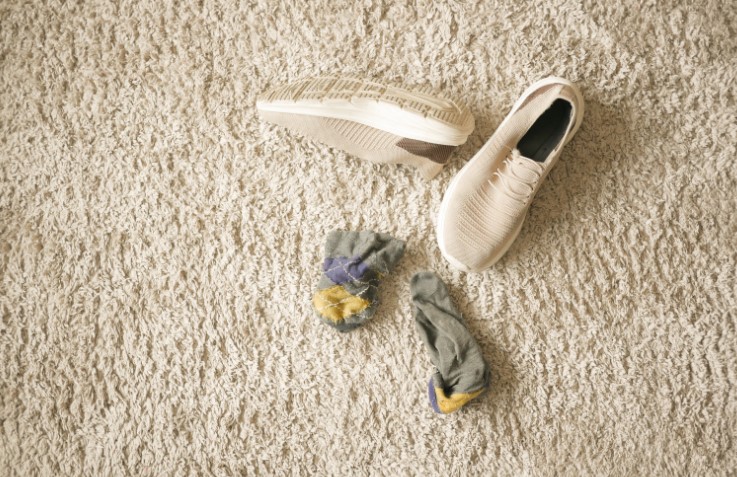
Preventing Shoe Odor in the Future
1. Wearing Socks
Socks are essential for absorbing sweat and preventing moisture from soaking into your shoes. Cotton socks, in particular, are great at absorbing sweat, keeping both your feet and shoes dry. If you often wear shoes without socks, consider switching to low-cut or no-show socks to protect your shoes from odor buildup.
2. Rotating Shoes
Wearing the same pair of shoes every day doesn’t give them enough time to dry out between uses. To prevent odors, rotate between multiple pairs of shoes, giving each pair a chance to air out and dry thoroughly.
3. Regular Shoe Cleaning
Cleaning your shoes regularly is crucial to keeping odors at bay. Remove and wash insoles whenever possible, and consider washing fabric shoes in the washing machine. For shoes that can’t be washed, use baking soda or shoe deodorizer regularly to maintain freshness.

Conclusion
By using simple methods like baking soda, vinegar, or essential oils, you can instantly remove unpleasant smells from your shoes. Regular maintenance, such as wearing socks, cleaning shoes, and rotating pairs, will help prevent future odors. With these tips, you’ll keep your shoes smelling fresh and clean, even after heavy use.

by Kanimozhi BV | Sep 7, 2024 | Living Room, Bedroom, Interior
Cigarette smoke is notorious for lingering in a room, settling into walls, carpets, and furniture. Its smell can be overwhelming, but with the right approach, you can get rid of it quickly.
This guide on how to remove cigarette smell from room instantly walks you through natural and instant methods to remove cigarette odor and offers tips to prevent it from coming back.
Why Does Cigarette Smoke Linger?
Cigarette smoke releases toxic chemicals that penetrate surfaces such as fabrics, walls, and upholstery. This residue, known as third-hand smoke, clings to materials long after the cigarette is extinguished.
Third-hand smoke builds up in layers, creating a sticky film that continues to emit an odor. Simply airing out a room isn’t enough, as the particles remain embedded in surfaces. It’s essential to tackle the problem using targeted cleaning methods.
How to Remove Cigarette Smell Instantly?
1. Ventilation and Air Circulation
The fastest and easiest way to begin removing cigarette smell is to improve air circulation. Open all windows & doors to allow fresh air in, and try using fans to push the smoky air outside.
While this won’t completely eliminate the odor, it helps reduce airborne particles, making the room more breathable as you implement other methods.

2. Baking Soda for Odor Absorption
Baking soda is a powerful natural deodorizer. To remove the smoke smell from carpets, furniture, or rugs, sprinkle a generous amount of baking soda over the affected area.
Leave it for overnight to absorb the odor. Then, vacuum it up to leave your fabrics smelling fresher. Baking soda doesn’t just mask the odor; it absorbs and neutralizes it.
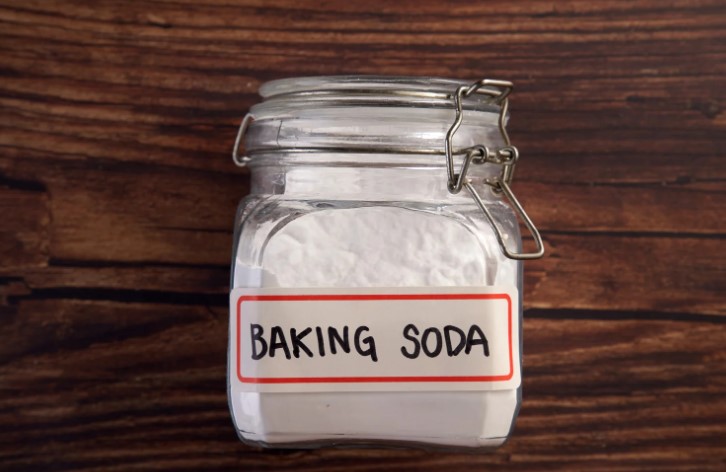
3. Vinegar for Neutralizing Smoke Odor
White vinegar is another effective odor neutralizer. Place bowls of vinegar around the room to absorb the lingering smell, or create a cleaning solution with vinegar and water.
Wipe down surfaces like walls, countertops, and even furniture. The acidity in vinegar helps to break down the tar and nicotine residue left behind by cigarette smoke.
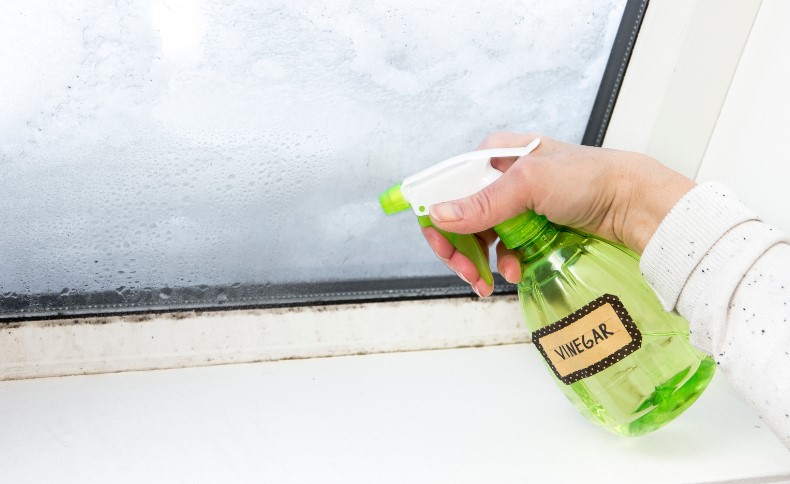
4. Use Air Purifiers
Air purifiers with HEPA filters and activated carbon filters are excellent at removing cigarette smoke particles from the air. These purifiers work by trapping smoke particles and circulating clean air back into the room.
For best results, place the purifier in the center of the room and run it for a few hours. This method works well for both instant and long-term cigarette smell removal.

5. Essential Oils for Freshening the Air
Essential oils, such as lavender, eucalyptus, and lemon, can help mask and neutralize smoke odors while leaving a pleasant scent.
Add a few drops of your chosen oil to a diffuser, or create a DIY spray by mixing essential oils with water. Spritz this solution around the room, focusing on fabrics like curtains and cushions.
6. Charcoal or Activated Carbon
Charcoal is a highly absorbent material that naturally removes odors from the air. Place bowls of activated carbon or charcoal briquettes around the room to absorb the cigarette smell.
These materials are commonly used for deodorizing and are particularly effective in smaller spaces like closets or cars.
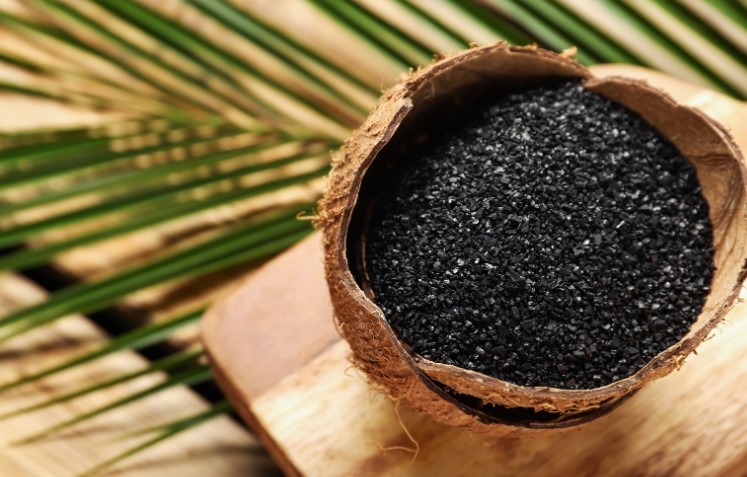
7. Cleaning Fabrics and Carpets
Fabrics, carpets, and upholstery can trap smoke odors for a long time. To eliminate these odors, machine wash any washable fabrics (like curtains and cushion covers) with a cup of white vinegar.
For carpets and larger furniture, sprinkle baking soda, allow it to sit for a few hours, and then vacuum it up. You can also use a steam cleaner for deeper cleaning if necessary.
Preventing Cigarette Odor in the Future
1. Regular Cleaning and Ventilation
To prevent cigarette smells from returning, maintain regular cleaning routines. Dust and wipe down surfaces, vacuum carpets, and launder fabrics often to avoid any buildup of smoke residue.
Ensure proper ventilation by keeping windows open whenever possible, especially after smoking.
2. Encourage Smoking Outdoors
One of the most effective ways to prevent cigarette smells is to ask smokers to smoke outside. This minimizes the amount of smoke that enters your home.
Additionally, use ashtrays with lids and empty them frequently to prevent the smell from spreading indoors.

Conclusion
Cigarette smoke is tough to eliminate, but with the right combination of natural remedies like baking soda, vinegar, and air purifiers, you can quickly freshen your room. Preventive measures, such as regular cleaning and outdoor smoking, are essential to keep your space odor-free in the long run.
Follow these guidelines on how to remove cigarette smell from room instantly, to completely get rid of such odor.
FAQs on Cigarette Smell Removal
1. Can Vinegar Remove Cigarette Smell Permanently?
Yes, vinegar is an excellent solution for removing cigarette smells permanently. When used on surfaces or in bowls left out in the room, vinegar works to neutralize odors.
You may need to apply it more than once for stronger or long-standing smells, but it effectively eliminates the odor rather than masking it.
2. How Long Does It Take to Get Rid of the Cigarette Smell?
The time it takes to remove the cigarette smell depends on the severity of the odor. With proper ventilation and a combination of methods like using vinegar, baking soda, and air purifiers, you should notice significant improvements within a few hours.
However, deeper or older odors embedded in fabrics or walls may take a couple of days to fully dissipate.
3. Are Air Fresheners Effective?
Air fresheners can mask cigarette odors temporarily, but they do not eliminate the cause of the smell. For a lasting solution, it’s important to use deodorizing methods like vinegar and baking soda to absorb and neutralize the odor.
Air fresheners can complement these methods by providing a pleasant scent once the odor has been removed.























